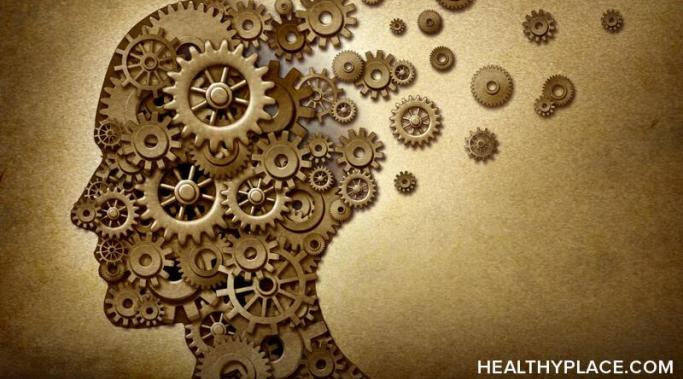Borderline dissociation is one of the most confusing things to deal with as a person who struggles with borderline personality disorder (BPD). How do we learn how to create a solid reality rather than having to constantly regain what we think is the reality? Is it ever going to get easier? I don't know if I'm confused because I feel nothing from the borderline dissociation or more confused because I can't figure out which reality is better.
Living With Mental Illness
Society's expectations have pressured me to live in a certain way for as long as I can remember. There are specific life events and accomplishments that society seems to expect of everyone. Examples are: graduate high school, go to college, establish a good career, get married, have children, and the list goes on. Society's expectations fuel my anxiety and depression, and here's why.
Never give up hope. Sometimes in your life, it comes down to seconds before you feel like the whole world is going to fall apart--your whole body is filled with disappointment and you don't know if you can keep on fighting. That was me, along with the million other fans, yesterday during the Minnesota Vikings vs New Orlean Saints playoff game. But with 10 seconds left, a miracle happens that reminds me that if you never give up hope, what you may think is impossible can change everything.
I'm setting mental health goals because nothing is better than getting a fresh start and feeling confident about the new year. I love watching everyone push to find new resolutions that they're excited about. My mental health goals this year are to gain more self-control, work on overcoming paranoia in my relationship and get into therapy.
It's so hard living with chronic pain--something that people can't see from the outside--and constantly feeling the need to justify how you feel or act towards others. Being someone with both mental and physical health problems have left me on a rollercoaster of never feeling like I'm good enough.
Breaking mental health routines can be hard. Nobody likes moving homes; it's never easy packing up everything you own to start over somewhere new. But it's even more difficult knowing you're going to have to break your mental health routines, the routines that keep you sane, and start all over again.
One of the hardest symptoms of bipolar disorder is racing thoughts. These racing thoughts can lead to flashbacks of things you've tried to forget. When I'm manic, I'm left with little-to-no sleep because I just can't seem to shut my mind off. I'm left reliving every bad thing that has happened to me and I begin to obsess about everything that could happen to me. Bipolar's racing thoughts are hard to deal with.
You can't turn off your mental illness in the workplace. I am a server. Although this pays the bills, it triggers a lot of an emotional and physical stress. Unfortunately, almost all of us will have to find some sort of income to survive in today's society, but what happens when you're faced with the constant pressure and stress of having a mental illness in the workplace?
I wish my loved ones knew certain things about my mental health. But explaining mental illness to someone who doesn’t have it can feel impossible, especially when it comes to family members and close friends. We want our loved ones to support us without judgement, but it doesn’t always work out that way. Here's what I wish my loved ones knew about my mental health.
There are a variety of reasons why gratitude is good for our mental health. Gratitude simply means expressing feelings of thankfulness. During depressive episodes or in moments of deep despair it can be discouraging when people encourage you to be grateful for all you have. It causes feelings of guilt on the behalf of the depressed person. Mental health conditions such as depression or bipolar affect all types of people. Although a person's life may be filled with riches it does not eliminate the effects of depression. Nevertheless, our mental health can be helped with gratitude.









